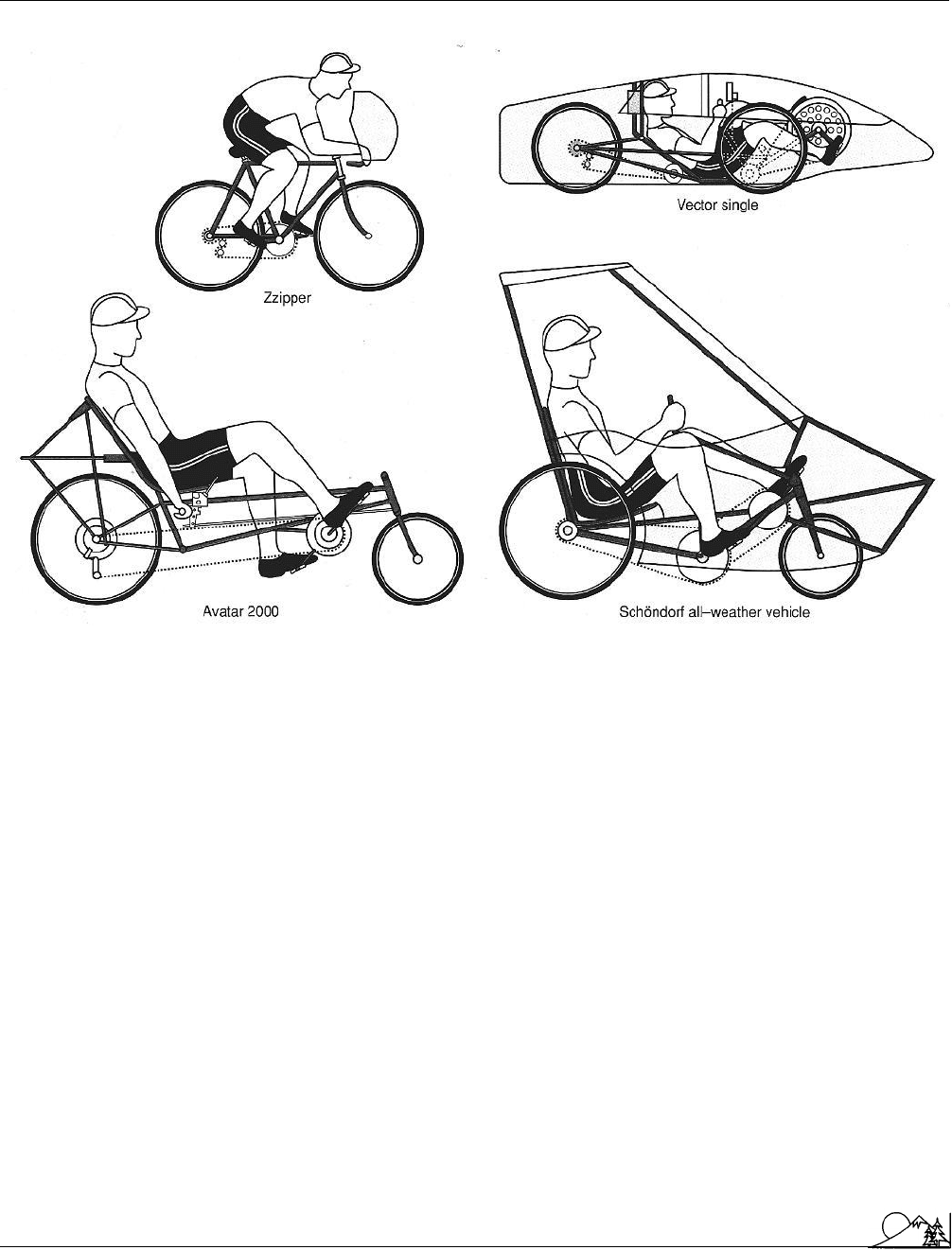Environmental Encyclopedia
Подождите немного. Документ загружается.


Environmental Encyclopedia 3
Human ecology
florida), together with a wide variety of small herbaceous
plants.
The Hudson River is comparatively short. More than
80 American rivers are longer than it, but it plays a major
role in New York’s economy and
ecology
. Pollution threats
to the river have been caused by the
discharge
of industrial
and municipal waste, as well as pesticides washed off the
land by rain. From 1930 to 1975, one chemical company
on the river manufactured approximately 1.4 billion pounds
of
polychlorinated biphenyls
(PCBs), and an estimated
10 million pounds a year entered the
environment
. In all,
a total of 1.3 million pounds of PCB contamination allegedly
occurred during the years prior to the ban, with the pollution
originating from plants at Ford Edward and Hudson Falls.
A ban was put in place for a time prohibiting the possession,
removal, and eating of fish from the waters of the upper
Hudson River. A proposed cleanup was designated, to pro-
ceed by means of a 40-mile
dredging
and sifting of 2.65
million cubic yards of
sediment
north of Albany, with an
anticipated yield of 75 tons of PCBs.
In February of 2001 the U.S.
Environmental Protec-
tion Agency
(EPA), having invoked the Superfund law,
required the chemical company to begin planning the
cleanup. The company was given several weeks to present
a viable plan of attack, or else face a potential $1.5 billion
fine for ignoring the directive in lieu of the cost of cleanup.
The cleanup cost, estimated at $500 million was presented
as the preferred alternative. The engineering phase of the
cleanup project was expected to take three years of planning
and was to be scheduled after the offending company filed
a response to the EPA. The company responded within the
allotted time frame in order to placate the EPA, although
the specifics of a drafted work plan remained undetermined,
and the company refused to withdraw a lawsuit filed in
November of 2000, which challenged the constitutionality
of the so-called Superfund law that authorized the EPA
to take action. The river meanwhile was ranked by one
environmental watchdog group as the fourth most endan-
gered in the United States, specifically because of the PCB
contamination. Environmental groups demanded also that
attention be paid to the issues of
urban sprawl
, noise,
and other pollution, while proposals for potentially polluting
projects were endorsed by industrialists as a means of spur-
ring the area’s economy. Among these industrial projects,
the construction of a cement plant in Catskill where there
is easy access to a limestone quarry, and the development
of a power plant along the river in Athens generated contro-
versy, stemming from the industrial asset afforded by devel-
opment along the river versus the advantages of a less fouled
environment. Additionally, the power plant, which threat-
ened to add four new smokestacks to the skyline and to
aggravate pollution, was seen as potentially detrimental to
727
tourism in that area. Also in recent decades,
chlorinated
hydrocarbons
, dieldrin, endrin, DDT, and other pollutants
have been linked to the decline in populations of the once
common Jefferson salamander (Ambystoma jeffersonianum),
fish hawk (Pandion haliaetus), and
bald eagle
(Haliaeetus
leucocephalus).
Concerns over the condition of the lower river spread
anew following a severe September 11 terrorist attack on
New York City in 2001. In this coastal tri-state urban area
where anti-dumping laws were put in place in the mid twen-
tieth century to protect the river from deterioration due to
pollution, new threats of pollution surfaced regarding the
potential for assorted types of leakage into the river caused
when the integrity of some land-based structures including
seawalls and underwater tunnels was compromised by the
impact of exploding commercial jetliners involved in the
attack. See also Agricultural pollution; Dams; Estuary;
Feedlot runoff; Fertilizer runoff; Industrial waste treatment;
Sewage treatment; Wastewater
[David Clarke]
R
ESOURCES
B
OOKS
Boyle, R. H. The Hudson River, A Natural and Unnatural History. New
York: Norton, 1979.
Peirce, N. R., and J. Hagstrom. The Book of America, Inside the Fifty States
Today. New York: Norton, 1983.
P
ERIODICALS
The Scientist, March 19, 2001.
Human ecology
Human
ecology
may be defined as the branch of knowledge
concerned with relationships between human beings and
their environments. Among the disciplines contributing
seminal work in this field are sociology, anthropology, geog-
raphy, economics, psychology, political science, philosophy,
and the arts. Applied human ecology emerges in engineering,
planning, architecture, landscape architecture,
conserva-
tion
, and public health. Human ecology, then, is an interdis-
ciplinary study which applies the principles and concepts of
ecology to human problems and the human condition. The
notion of interaction—between human beings and the
envi-
ronment
and between human beings—is fundamental to
human ecology, as it is to biological ecology.
Human ecology as an academic inquiry has disciplinary
roots extending back as far as the 1920s. However, much
work in the decades prior to the 1970s was narrowly drawn
and was often carried out by a few individuals whose intellec-
tual legacy remained isolated from the mainstream of their

Environmental Encyclopedia 3
Humane Society of the United States
disciplines. The work done in sociology offers an exception
to the latter (but not the former) rule; sociological human
ecology is traced to the Chicago school and the intellectual
lineage of Robert Ezra Park, his student Roderick D. Mac-
kenzie, and Mackenzie’s student Amos Hawley. Through
the influence of these men and their school, human ecology,
for a time, was narrowly identified with a sociological analysis
of spatial patterns in urban settings (although broader ques-
tions were sometimes contemplated).
Comprehensive treatment of human ecology is first
found in the work of Gerald L. Young, who pioneered the
study of human ecology as an interdisciplinary field and as
a conceptual framework. Young’s definitive framework is
founded upon four central themes. The first of these is
interaction, and the other three are developed from it: levels
of organization, functionalism (part-whole relationships),
and holism. These four basic concepts form the foundation
for a series of field derivatives (
niche
, community, and
eco-
system
) and consequent notions (institutions, proxemics,
alienation, ethics, world community, and stress/capacitance).
Young’s emphasis on linkages and process set his approach
apart from other synthetic attempts in human ecology, which
were largely cumbersome classificatory schemata. These were
subject to harsh criticism because they tended to embrace
virtually all knowledge, resolve themselves into superficial
lists and mnemonic “building blocks,” and had little applica-
bility to real-world problems.
Generally, comprehensive treatment of human ecology
is more advanced in Europe than it is in the United States.
A comprehensive approach to human ecology as an interdis-
ciplinary field and conceptual framework gathered momen-
tum in several independent centers during the 1970s and
1980s. Among these have been several college and university
programs and research centers, including those at the Uni-
versity of Go
¨
teborg, Sweden, and, in the United States, at
Rutgers University and the University of California at Davis.
Interdisciplinary programs at the undergraduate level were
first offered in 1972 by the College of the Atlantic (Maine)
and The Evergreen State College (Washington). The Com-
monwealth Human Ecology Council in the United King-
dom, the International Union of Anthropological and Eth-
nological Sciences’ Commission on Human Ecology, the
Centre for Human Ecology at the University of Edinburgh,
the Institute for Human Ecology in California, and profes-
sional societies and organizations in Europe and the United
States have been other centers of development for the field.
Dr. Thomas Dietz, President of the Society for Hu-
man Ecology, defined some of the priority research problems
which human ecology addresses in recent testimony before
the U.S. House of Representatives Subcommittee on Envi-
ronment and the
National Academy of Sciences
Commit-
tee on Environmental Research. Among these, Dietz listed
728
global change, values, post-hoc evaluation, and science and
conflict in
environmental policy
. Other human ecologists
would include in the list such items as commons problems,
carrying capacity
,
sustainable development
, human
health, ecological economics, problems of resource use and
distribution, and family systems. Problems of epistemology
or cognition such as environmental perception, conscious-
ness, or paradigm change also receive attention.
Our Common Future, the report of the United Nation’s
World Commission on Environment and Development of
1987, has stimulated a new phase in the development of
human ecology. A host of new programs, plans, conferences
and agendas have been put forth, primarily to address phe-
nomena of global change and the challenge of sustainable
development. These include the Sustainable Biosphere Initia-
tive published by the
Ecological Society of America
in
1991 and extended internationally; the United Nations Con-
ference on Environment and Development; the proposed
new United States National Institutes for the Environment;
the Man and the
Biosphere
Program’s Human-Dominated
Systems Program; the report of the
National Research
Council
Committee on Human Dimensions of Global
Change and the associated National Science Foundation’s
Human Dimensions of Global Change Program; and
green
plans
published by the governments of Canada, Norway,
the Netherlands, the United Kingdom, and Austria. All
of these programs call for an integrated, interdisciplinary
approach to complex problems of human-environmental re-
lationships. The next challenge for human ecology will be
to digest and steer these new efforts and to identify the
perspectives and tools they supply.
[Jeremy Pratt]
R
ESOURCES
B
OOKS
Jungen, B. “Integration of Knowledge in Human Ecology.” In Human
Ecology: A Gathering of Perspectives, edited by R. J. Borden, et al., Selected
papers from the First International Conference of the Society for Human
Ecology, 1986.
———. Origins of Human Ecology. Stroudsberg, PA: Hutchinson &
Ross, 1983.
P
ERIODICALS
Young, G. L. “Human Ecology As An Interdisciplinary Concept: A Critical
Inquiry.” Advances in Ecological Research 8 (1974): 1–105.
———. “Conceptual Framework For An Interdisciplinary Human Ecol-
ogy.” Acta Oecologiae Hominis 1 (1989): 1–136.
Humane Society of the United States
The largest animal protection organization in the United
States, Humane Society of the United States (HSUS) works

Environmental Encyclopedia 3
Human-powered vehicles
to preserve
wildlife
and
wilderness
, save
endangered spe-
cies
, and promote humane treatment of all animals. Formed
in 1954, HSUS specializes in education, cruelty investiga-
tions and prosecutions, wildlife and
nature
preservation,
environmental protection, federal and state legislative activi-
ties, and other actions designed to protect animal welfare
and the
environment
.
Major projects undertaken by HSUS in recent years
have included campaigns to stop the killing of
whales
,
dolphins
,
elephants
, bears, and
wolves
; to help reduce
the number of animals used in medical research and to
improve the conditions under which they are used; to oppose
the use of fur by the fashion industry; and to address the
problem of pet overpopulation.
The group has worked extensively to ban the use of
tuna caught in a way that kills dolphins, largely eliminating
the sale of such products in the United States and western
Europe. It has tried to stop international airlines from trans-
porting exotic birds into the United States. Other high prior-
ity projects have included banning the international trade in
elephant ivory, especially imports into the United States,
and securing and maintaining a general worldwide morato-
rium on commercial
whaling
.
HSUS companion animals section works on a variety
of issues affecting dogs, cats, birds, horses, and other animals
commonly kept as pets, striving to promote responsible pet
ownership, particularly the spaying and neutering of dogs
and cats to reduce the tremendous overpopulation of these
animals. HSUS works closely with local shelters and humane
societies across the country, providing information, training,
evaluation, and consultation.
Several national and international environmental and
animal protection groups are affiliated and work closely with
HSUS. Humane Society International works abroad to fulfill
HSUS’s mission and to institute reform and educational
programs that will benefit animals. EarthKind, a global envi-
ronmental protection group that emphasizes wildlife protec-
tion and humane treatment of animals, has been active in
Russia, India, Thailand, Sri Lanka, the United Kingdom,
Romania, and elsewhere, working to preserve forests,
wet-
lands
, wild rivers, natural ecosystems, and endangered
wildlife.
The National Association for Humane and
Environ-
mental Education
is the youth education division of HSUS,
developing and producing periodicals and teaching materials
designed to instill humane values in students and young
people, including KIND (Kids in Nature’s Defense) News,a
newspaper for elementary school children, and KIND
TEACHER, an 80-page annual full of worksheets and activi-
ties for use by teachers.
The Center for Respect of Life and the Environment
works with academic institutions, scholars, religious leaders
729
and organizations, arts groups, and others to foster an ethic
of respect and compassion towards all creatures and the
natural environment. Its quarterly publication, Earth Ethics,
examines such issues as earth education, sustainable commu-
nities, ecological economics, and other values affecting our
relationship with the natural world. The Interfaith Council
for the Protection of Animals and Nature promotes
conser-
vation
and education mainly within the religious commu-
nity, attempting to make religious leaders, groups, and indi-
viduals more aware of our moral and spiritual obligations to
preserve the planet and its myriad life forms.
HSUS has been quite active, hard-hitting, and effec-
tive in promoting its animal protection programs, such as
leading the fight against the fur industry. It accomplishes
its goals through education, lobbying, grassroots organizing,
and other traditional, legal means of influencing public opin-
ion and government policies.
With over 3.5 million members or “constituents” and
an annual budget of over $35 million, HSUS is considered
the largest and one of the most influential animal protection
groups in the United States and, perhaps, the world.
[Lewis G. Regenstein]
R
ESOURCES
O
RGANIZATIONS
The Humane Society of the United States, 2100 L Street, NW,
Washington, D.C. USA 20037 (202) 452-1100, <http://www.hsus.org>
Humanism
A perspective or doctrine that focuses primarily on the inter-
ests, capacities, and achievements of human beings. This
focus on human concerns has led some to conclude that
human beings have rightful dominion over the earth and
that their interests and well-being are paramount and take
precedence over all other considerations. Religious humanism,
for instance, generally holds that God made human beings
in His own image and put them in charge of His creation.
Secular humanism views human beings as the source of all
value or worth. Some environmentally-minded critics, such
as Lynn White Jr., and David Ehrenfeld claim that much
environmental destruction can be traced to “the arrogance
of humanism.”
Human-powered vehicles
Finding easy modes of
transportation
seems to be a basic
human need, but finding easy and clean modes is becoming
imperative. Traffic congestion, overconsumption of
fossil
fuels
and
air pollution
are all direct results of automotive

Environmental Encyclopedia 3
Human-powered vehicles
Innovative bicycle designs. (McGraw-Hill Inc. Reproduced by permission.)
lifestyles around the world. The logical alternative is human-
powered vehicles (HPVs), perhaps best exemplified in the
bicycle, the most basic HPV. New high-tech developments
in HPVs are not yet ready for mass production, nor are they
able to compete with cars. Pedal-propelled HPVs in the air,
on land, or under the sea are still in the expensive, design-
and-race-for-a-prize category. But the challenge of human-
powered transport has inspired a lot of inventive thinking,
both amateur and professional.
Bicycles and rickshaws comprise the most basic HPVs.
Of these two vehicles, bicycles are clearly the most popular,
and production of these HPVs has surpassed production of
automobiles in recent years. The number of bicycles in use
throughout the world is roughly double that of cars; China
alone contains 270 million bicycles, or one third of the total
bicycles worldwide. Indeed the bicycle has overtaken the
automobile
as the preferred mode of transportation in many
nations. There are many reasons for the popularity of the
bike: it fulfills both recreational and functional needs, it is
an economical alternative to automobiles, and it does not
contribute to the problems facing the
environment
.
730
Although the bicycle provides a healthy and scenic
form of
recreation
, people also find it useful in basic
transportation. In the Netherlands, bicycle transportation
accounts for 30% of work trips and 60% of school trips.
One-third of commuting to work in Denmark is by bicycle.
In China, the vast majority of all trips there are made
via bicycle.
A surge in bicycle production occurred in 1973, when
in conjunction with rising oil costs, production doubled to
52 million per year. Soaring fuel prices in the 1970s inspired
people to find inexpensive, economical alternatives to cars,
and many turned to bicycles. Besides being efficient trans-
portation, bikes are simply cheaper to purchase and to main-
tain than cars. There is no need to pay for parking or tolls,
no expensive upkeep, and no high fuel costs.
The lack of fuel costs associated with bicycles leads to
another benefit: bicycles do not harm the environment. Cars
consume fossil fuels and in so doing release more than two-
thirds of the United States’ smog-producing
chemicals
.
They are furthermore considered responsible for many other
environmental ailments: depletion of the
ozone
layer

Environmental Encyclopedia 3
Human-powered vehicles
through release of
chlorofluorocarbons
from automobile
air conditioning units; cause of
cancer
through toxic emis-
sions; and consumption of the world’s limited fuel resources.
With human energy as their only requirement, bicycles have
none of these liabilities.
Nevertheless, in many cases—such as long trips or
travelling in inclement weather—cars are the preferred form
of transportation. Bicycles are not the optimal choice in many
situations. Thus engineers and designers seek to improve on
the bicycle and make machines suitable for transport under
many different conditions. They are striving to produce new
human-powered vehicles—HPVs that maximize air and sea
currents, that have reasonable interior ergonomics, and that
can be inexpensively produced. Several machines designed
to fit this criteria exist.
As for developments in human-powered aircraft, suc-
cess is judged on distance and speed, which depend on the
strength of the pedaller and the lightness of the craft. The
current world record holder is Greek Olympic cyclist Ka-
nellos Kanellopoulos who flew Daedalus 88. Daedalus 88 was
created by engineer John Langford and a team of MIT
engineers and funded by American corporations. Kanello-
poulos flew Daedalus 88 for 3 hours and 54 minutes across
the Aegean Sea between Crete and Santorini, a distance of
74 mi (119 km), in April 1988. The craft averaged 18.5
mph (29 kph) and flew 15 ft (4.6 m) above the water. Upon
arrival at Santorini, however, the sun began to heat up the
black sands and generate erratic shore winds and Daedalus
88 plunged into the sea. It was a few yards short of its goal,
and the tailboom of the 70-lb (32-kg) vehicle was snapped
by the wind. But to cheering crowds on the beach, Kanello-
poulos rose from the sea with a victory sign and strode to
shore.
In the creation of a human-powered helicopter, stu-
dents at California Polytechnic State University had been
working on perfecting one since 1981. In 1989 they achieved
liftoff with Greg McNeil, a member of the United States
National Cycling Team, pedalling an astounding 1.0 hp.
The graphite epoxy, wood, and Mylar craft, Da Vinci III,
rose 7 in (17.7 cm) for 6.8 seconds. But rules for the $10,000
Sikorsky prize, sponsored by the American Helicopter Soci-
ety, stipulate that the winning craft must rise nearly 10 ft,
or 3 m, and stay aloft one minute.
On land, recumbent vehicles, or recumbents, are
wheeled vehicles in which the driver pedals in a semi-recum-
bent position, contained within a windowed enclosure. The
world record was set in 1989 by American Fred Markham
at the Michigan International Speedway in an HPV named
Goldrush. Markham pedalled more than 44 mph (72 kph).
Unfortunately, the realities of road travel cast a long
shadow over recumbent HPVs. Crews discovered that they
tended to be unstable in crosswinds, distracted other drivers
731
and pedestrians, and lacked the speed to correct course safely
in the face of oncoming cars and trucks.
In the sea, being able to maneuver at your own pace
and be in control of your vehicle—as well as being able to
beat a fast retreat undersea—are the problems faced by HPV
submersible engineers. Human-powered subs are not a new
idea. The Revolutionary War created a need for a bubble
sub that was to plant an explosive in the belly of a British
ship in New York Harbor. (The naval officer, breathing
one-half hour’s worth of air, failed in his night mission, but
survived).
The special design problems of modern two-person
HP-subs involve controlling buoyancy and ballast, pitch and
yaw (nose up/down/sideways), reducing drag, increasing
thrust, and positioning the pedaller and the propulsor in the
flooded cockpit (called “wet") in ways that maximize air
intake from scuba tanks and muscle power from arms and
legs.
Depending on the design, the humans in HP-subs lie
prone, foot to head or side by side, or sit, using their feet
to pedal and their hands to control the rudder through
the underwater currents. Studies by the United States Navy
Experimental Dive Unit indicate that a well-trained athlete
can sustain 0.5 hp for 10 minutes underwater.
On the surface of the water, fin-propelled watercraft—
lightweight inflatables that are powered by humans kicking
with fins—are ideal for fishermen whom maneuverability,
not speed, is the goal. Paddling with the legs, which does
not disturb fish, leaves the hands free to cast. In most designs,
the fisherman sits on a platform between tubes, his feet in
the water. Controllability is another matter, however: in
open windy water, the craft is at the mercy of the elements
in its current design state. Top speed is about 50 yd (46 m)
in three minutes.
Finally, over the surface of the water, the first human-
powered hydrofoil, Flying Fish, with national track sprinter
Bobby Livingston, broke a world record in September 1989
when it traveled 100 m over Lake Adrian, Michigan, at 16.1
knots (18.5 mph). A vehicle that pedalled like a bicycle,
resembled a model airplane with a two-blade propeller and
a 6-ft (1.8-m)
carbon
graphite wing, Flying Fish sped across
the surface of the lake on two pontoons.
[Stephanie Ocko and Andrea Gacki]
R
ESOURCES
B
OOKS
Lowe, M. “Bicycle Production Outpaces Autos.” In Vital Signs 1992: The
Trends That Are Shaping Our Future, edited by L. R. Brown, C, Flavin,
and H. Hane. New York: Norton, 1992.

Environmental Encyclopedia 3
Humus
P
ERIODICALS
Banks, R. “Sub Story.” National Geographic World (July 1992): 8–11.
Blumenthal, T. “Outer Limits.” Bicycling, December 1989, 36.
Britton, P. “Muscle Subs.” Popular Science, June 1989, 126–129.
———. “Technology Race Beneath the Waves.” Popular Science, June 1991,
48–54.
Horgan, J. “Heli-Hopper: Human-powered Helicopter Gets Off the
Ground.” Scientific American 262 (March 1990): 34.
Kyle, C. R. “Limits of Leg Power.” Bicycling, October 1990, 100–101.
Langley, J. “Those Flying Men and Their Magnificent Machines.” Bicycling,
April 1992, 74–76.
“Man-Powered Helicopter Makes First Flight.” Aviation Week and Space
Technology, December 1989, 115.
Martin, S. “Cycle City 2000.” Bicycling, March 1992, 130–131.
Humus
Humus is essentially decomposed organic matter in
soil
.
Humus can vary in color but is often dark brown. Besides
containing valuable nutrients, there are many other benefits
of humus: it stabilizes soil mineral particles into aggregates,
improves pore space relationships and aids in air and water
movement, aids in water holding capacity, and influences
the
absorption
of
hydrogen
ions as a
pH
regulator.
Hunting and trapping
Wild animals are a potentially renewable natural resource.
This means that they can be harvested in a sustainable fash-
ion, as long as then birth rate is greater than the rate of
exploitation by humans. In the sense meant here, “harvest-
ing” refers to the killing of wild animals as a source of meat,
fur, antlers, or other useful products, or as an outdoor sport.
The harvesting can involve trapping, or hunting using guns,
bows-and-arrows, or other weapons. (Fishing is also a kind
of hunting, but it is not dealt with here). From the ecological
perspective, it is critical that the exploitation is undertaken
in a sustainable fashion; otherwise, serious damages are
caused to the resource and to ecosystems more generally.
Unfortunately, there have been numerous examples in
which wild animals have been harvested at grossly unsustain-
able rates, which caused their populations to decline severely.
In a few cases this caused
species
to become extinct—they
no longer occur anywhere on Earth. For example, commer-
cial hunting in North America resulted in the extinctions
of the great auk (Pinguinnis impennis),
passenger pigeon
(Ectopistes migratorius), and Steller’s sea cow (Hydrodamalis
stelleri). Unsustainable commercial hunting also brought
other species to the brink of
extinction
, including the Es-
kimo curlew (Numenius borealis), northern right whale (Eu-
balaena glacialis), northern fur seal (Callorhinus ursinus), grey
732
whale (Eschrichtius robustus), and American
bison
or buffalo
(Bison bison).
Fortunately, these and many other examples of over-
exploitation of wild animals by humans are regrettable cases
from the past. Today, the exploitation of wild animals in
North America is undertaken with a view to the longer-
term
conservation
of their stocks, that is, an attempt is
made to manage the harvesting in a sustainable fashion. This
means that trapping and hunting are much more closely
regulated than they used to be.
If harvests of wild animals are to be undertaken in
a sustainable manner, it is critical that harvest levels are
determined using the best available understanding of popula-
tion-level productivity and stock sizes. It is also essential
that harvest quotas are respected by trappers and hunters and
that illegal exploitation (or
poaching
) does not compromise
what might otherwise be a sustainable activity. The challenge
of modern
wildlife management
is to ensure that good
conservation science is sensibly integrated with effective
monitoring and management of the rates of exploitation.
Ethics of trapping and hunting
From the strictly ecological perspective, sustainable
trapping and hunting of wild animals is no more objection-
able than the prudent harvesting of timber or agricultural
crops. However, people have widely divergent attitudes about
the killing of wild (or domestic) animals for meat, sport, or
profit. At one end of the ethical spectrum are people who
see no problem with the killing wild animals as a source of
meat or cash. At the other extreme are individuals with a
profound respect for the rights of all animals, and who
believe that killing any sentient creature is ethically wrong.
Many of these latter people are animal-rights activists, and
some of them are involved in organizations that undertake
high-profile protests and other forms of advocacy to prevent
or restrict trapping and hunting. In essence, these people
object to the lethal exploitation of wild animals, even under
closely regulated conditions that would not deplete their
populations. Most people, of course, have attitudes that are
intermediate to those just described.
Trapping
The fur trade was one a very important commercial
activity during the initial phase of the colonization of North
America by Europeans. During those times, as now, furs
were a valuable commodity that could be obtained from
nature
and could be sold at a great profit in urban markets.
In fact, the quest for furs was the most important reason
for much of the early exploration of the interior of North
America, as fur traders penetrated all of the continent’s great
rivers seeking new sources of pelts and profit. Most fur-
bearing animals are harvested by a form of hunting known
as trapping.

Environmental Encyclopedia 3
Hunting and trapping
Until recently, most trapping involved leg-hold traps,
a relatively crude method that results in many animals endur-
ing cruel and lingering deaths. Fortunately, other, more
humane alternatives now exist in which most trapped animals
are killed quickly and do not suffer unnecessarily. In large
part, the movement towards more merciful trapping methods
has occurred in response to effective, high-profile lobbying
by organizations that oppose trapping, and the trapping
industry has responded by developing and using more hu-
mane methods of killing wild furbearers.
Various species of furbearers are trapped in North
America, particularly in relatively remote, wild areas, such as
the northern and montane forests of the continental United
States, Alaska, and Canada. Among the most valuable fur-
bearing species are beaver (Castor canadensis), muskrat (On-
datra zibethicus), mink (Mustela vison), river otter (Enhydra
lutris), bobcat (Lynx rufus), lynx (Lynx canadensis), red fox
(Vulpes vulpes), wolf (Canis lupus), and
coyote
(Canis la-
trans). The hides of other species are also valuable, such as
black bear (Ursus americanus), white-tailed deer (Odocoileus
virginianus), and moose (Alces alces), but these species are
not hunted primarily for their pelage.
Some species of
seals
are hunted for their fur, al-
though this is largely done by shooting, clubbing, or netting,
rather than by trapping. The best examples of this are the
harp seal (Phoca groenlandica) of the northwestern Atlantic
Ocean and the northern fur seal (Callorhinus ursinus) of the
Bering Sea. Many seal pups are killed by commercial hunters
in the spring when their coats are still white and soft. This
harvest has been highly controversial and is the subject of
intense opposition from
animal rights
groups.
Game Mammals
Hunting is a popular sport in North America, enjoyed
by about 16 million people each year, most of them men.
In 1991, hunting contributed more than $12 billion to the
United States economy, about half of which was spent by
big-game hunters.
Various species of terrestrial animals are hunted in
large numbers. This is mostly done by stalking the animals
and shooting them with rifles, although shotguns and bow-
and-arrow are sometimes used. Some hunting is done for
subsistence purposes, that is, the meat of the animals is used
to feed the family or friends of the hunters. Subsistence
hunting is especially important in remote areas and for ab-
original hunters. Commercial or market hunts also used to
be common, but these are no longer legal in North America
(except under exceptional circumstances) because they have
generally proven to be unsustainable. However, illegal, semi-
commercial hunting (or poaching) still takes place in many
remote areas where game animals are relatively abundant
and where there are local markets for wild meat.
733
In addition, many people hunt as a sport, that is, for
the excitement and accomplishment of tracking and killing
wild animals. In such cases, using the meat of the hunted
animals may be only a secondary consideration, and in fact
the hunter may only seek to retain the head, antlers, or horns
of the prey as a trophy (although the meat may be kept by
the hunter’s guide). Big-game hunting is an economically
important activity in North America, with large amounts of
money being spent on the equipment, guides, and
transpor-
tation
necessary to undertake this sport.
The most commonly hunted big-game mammal in
North America is the white-tailed deer. Other frequently
hunted ungulates include the mule deer (Odocoileus hemio-
nus), moose, elk or wapiti (Cervus canadensis), caribou (Ran-
gifer tarandus), and pronghorn antelope (Antilocapra ameri-
cana). Black bear and
grizzly bear
(Ursus arctos) are also
hunted, as are bighorn sheep (Ovis canadensis) and mountain
goat (Oreamnos americanus). Commonly hunted small-game
species include various species of rabbits and hares, such as
the cottontail rabbit (Sylvilagus floridanus), snowshoe hare
(Lepus americanus), and jackrabbit (Lepus californicus), as well
as the grey or black squirrel (Sciurus carolinensis) and wood-
chuck (Marmota monax). Wild boar (Sus scrofa) are also
hunted in some regions—these are feral animals descended
from escaped domestic pigs.
Game birds
Various larger species of birds are hunted in North
America for their meat and for sport. So-called upland game
birds are hunted in terrestrial habitats and include ruffed
grouse (Bonasa umbellus), willow ptarmigan (Lagopus lago-
pus), bobwhite quail (Colinus virginianus), wild turkey (Mel-
eagris gallopava), mourning dove (Zanaidura macroura), and
woodcock (Philohela minor). Several
introduced species
of
upland gamebirds are also commonly hunted, particularly
ring-necked pheasant (Phasianus colchicus) and Hungarian
or grey partridge (Perdix perdix).
Much larger numbers of waterfowl are hunted in
North America, including millions of ducks and geese. The
most commonly harvested species of waterfowl are mallard
(Anas platyrhynchos), wood duck (Aix sponsa), Canada goose
(Branta canadensis), and snow and blue goose (Chen hyper-
borea), but another 35 or so species in the duck family are
also hunted. Other hunted waterfowl include coots (Fulica
americana) and moorhens (Gallinula chloropus).
[Bill Freedman Ph.D.]
R
ESOURCES
B
OOKS
Halls, L. K., ed. White-tailed Deer: Ecology and Management. Harrisburg:
Stackpole Books, 1984.

Environmental Encyclopedia 3
Hurricane
Novak, M., et al. Wild Furbearer Management and Conservation in North
America. North Bay: Ontario Trappers Association, 1987.
Phillips, P. C. The Fur Trade (2 vols.). Norman: University of Okla-
homa, 1961.
Robinson, W. L., and E. G. Bolen. Wildlife Ecology and Management. 3rd
ed. New York: Macmillan, 1996.
P
ERIODICALS
Freedman, B. Environmental Ecology. 2nd ed. San Diego: Academic
Press, 1995.
Hurricane
Hurricanes, called typhoons or tropical cyclones in the Far
East, are intense cyclonic storms which form over warm
tropical waters, and generally remain active and strong only
while over the oceans. Their intensity is marked by a distinct
spiraling pattern of clouds, very low atmospheric pressure
at the center, and extremely strong winds blowing at speeds
greater than 74 mph (120 kph) within the inner rings of
clouds. Typically when hurricanes strike land and move in-
land, they immediately start to disintegrate, though before
they do they bring widespread destruction of property and
loss of life. The radius of such a storm can be 100 mi (160
km) or greater. Thunderstorms, hail, and tornados frequently
are imbedded in hurricanes.
Hurricanes occur in every tropical ocean except the
South Atlantic, and with greater frequency from August
through October than any other time of year. The center
of a hurricane is called the eye. It is an area of relative
calm, few clouds and higher temperatures, and represents
the center of the low pressure pattern. Hurricanes usually
move from east to west near the tropics, but when they
migrate poleward to the mid-latitudes they can get caught
up in the general west to east flow pattern found in that
region of the earth. See also Tornado and cyclone
George Evelyn Hutchinson (1903 –
1991)
American ecologist
Born January 30, 1903, in Cambridge, England, Hutchinson
was the son of Arthur Hutchinson, a professor of mineralogy
at Cambridge University, and Evaline Demeny Shipley
Hutchinson, an ardent feminist. He demonstrated an early
interest in
flora
and
fauna
and a basic understanding of
the scientific method. In 1918, at the age of 15, he wrote
a letter to the Entomological Record and Journal of Variation
about a grasshopper he had seen swimming in a pond. He
described an experiment he performed on the insect and
included it for taxonomic identification.
734
In 1924, Hutchinson earned his bachelor’s degree in
zoology from Emmanuel College at Cambridge University,
where he was a founding member of the Biological Tea
Club. He then served as an international education fellow
at the Stazione Zoologica in Naples from 1925 until 1926,
when he was hired as a senior lecturer at the University
of Witwatersrand in Johannesburg, South Africa. He was
apparently fired from this position two years later by admin-
istrators who never imagined that in 1977 the university
would honor the ecologist by establishing a research labora-
tory in his name.
Hutchinson earned his master’s degree from Emman-
uel College in absentia in 1928 and applied to Yale University
for a fellowship so he could pursue a doctoral degree. He
was instead appointed to the faculty as a zoology instructor.
He was promoted to assistant professor in 1931 and became
an associate professor in 1941, the year he obtained his
United States citizenship. He was made a full professor of
zoology in 1945, and between 1947 and 1965 he served as
director of graduate studies in zoology. Hutchinson never did
receive his doctoral degree, though he amassed an impressive
collection of honorary degrees during his lifetime.
Hutchinson was best known for his interest in
limnol-
ogy
, the science of freshwater lakes and ponds. He spent
most of his life writing the four-volume Treatise on Limnol-
ogy, which he completed just months before his death. The
research that led to the first volume—covering geography,
physics, and chemistry—earned him a Guggenheim Fellow-
ship in 1957. The second volume, published in 1967, covered
biology and
plankton
. The third volume, on water plants,
was published in 1975, and the fourth volume, about inverte-
brates, appeared posthumously in 1993.
The Treatise on Limnology was among the nine books,
nearly 150 research papers, and many opinion columns which
Hutchinson penned. He was an influential writer whose
scientific papers inspired many students to specialize in
ecol-
ogy
. Hutchinson’s greatest contribution to the science of
ecology was his broad approach, which became known as
the “Hutchinson school.” His work encompassed disciplines
as varied as biochemistry, geology, zoology, and botany. He
pioneered the concept of
biogeochemistry
, which examines
the exchange of
chemicals
between organisms and the
envi-
ronment
. His studies in biogeochemistry focused on how
phosphates
and
nitrates
move from the earth to plants,
then animals, and then back to the earth in a continuous
cycle. His
holistic approach
influenced later environmen-
talists when they began to consider the global scope of envi-
ronmental problems.
In 1957, Hutchinson published an article entitled
“Concluding Remarks,” considered his most inspiring and
intriguing work, as part of the Cold Spring Harbor Symposia
on Quantitative Biology. Here, he introduced and described

Environmental Encyclopedia 3
George Evelyn Hutchinson
the ecological
niche
, a concept which has been the source
of much research and debate ever since. The article was one
of only three in the field of ecology chosen for the 1991
collection Classics in Theoretical Biology.
Hutchinson won numerous major awards for his work
in ecology. In 1950, he was elected to the National Academy
of Science. Five years later, he earned the Leidy Medal
from the Philadelphia Academy of Natural Sciences. He
was awarded the Naumann Medal from the International
Association of Theoretical and Applied Limnology in 1959.
This is a global award, granted only once every three years,
which Hutchinson earned for his contributions to the study
of lakes in the first volume of his treatise. In 1962, the
Ecological Society of America
chose him for its Eminent
Ecologist Award.
Hutchinson’s research often took him out of the coun-
try. In 1932, he joined a Yale expedition to Tibet, where
he amassed a vast collection of organisms from high-altitude
lakes. He wrote many scientific articles about his work in
North India, and the trip also inspired his 1936 travel book,
The Clear Mirror. Other research projects drew Hutchinson
to Italy, where, in the
sediment
of Lago di Monterosi, a
lake north of Rome, he found evidence of the first case of
artificial eutrophication, dating from around 180
B.C.
Hutchinson was devoted to the arts and humanities,
and he counted several musicians, artists, and writers among
his friends. The most prominent of his artistic friends was
English author Rebecca West. He served as her literary
executor, compiling a bibliography of her work which was
published in 1957. He was also the curator of a collection of
her papers at Yale’s Beinecke Library. Hutchinson’s writing
reflected his diverse interests. Along with his scientific works
and his travel book, he also wrote an autobiography and
three books of essays, The Itinerant Ivory Tower (1953),
The Enchanted Voyage and Other Studies (1962), and The
Ecological Theatre and the Evolutionary Play (1965). For 12
years, beginning in 1943, Hutchinson wrote a regular column
titled “Marginalia” for the American Scientist. His thoughtful
columns examined the impact on society of scientific issues
of the day.
Hutchinson’s skill at writing, as well as his literary
interests, was recognized by Yale’s literary society, the Eliza-
bethan Club, which twice elected him president. He was
also a member of the Connecticut Academy of Arts and
Sciences and served as its president in 1946.
While Hutchinson built his reputation on his research
and writing, he also was considered an excellent teacher.
His teaching career began with a wide range of courses
including beginning biology, entomology, and vertebrate
embryology. He later added limnology and other graduate
courses to his areas of expertise. He was personable as well
as innovative, giving his students illustrated note sheets, for
735
example, so they could concentrate on his lectures without
worrying about taking their own notes. Leading oceanogra-
pher Linsley Pond was among the students whose careers
were changed by Hutchinson’s teaching. Pond enrolled in
Yale’s doctoral program with the intention of becoming an
experimental embryologist. But after one week in Hutchin-
son’s limnology class, he had decided to do his dissertation
research on a pond.
Hutchinson loved Yale. He particularly cherished his
fellowship in the residential Saybrook College. He was also
very active in several professional associations, including the
American Academy of Arts and Sciences, the American
Philosophical Society, and the
National Academy of Sci-
ences
. He served as president of the American Society of
Limnology and Oceanography in 1947, the American Soci-
ety of Naturalists in 1958, and the International Association
for Theoretical and Applied Limnology from 1962 until
1968.
Hutchinson retired from Yale as professor emeritus in
1971, but continued his writing and research for 20 more
years, until just months before his death. He produced several
books during this time, including the third volume of his
treatise, as well as a textbook titled An Introduction to Popula-
tion Ecology (1978), and memoirs of his early years, The
Kindly Fruits of the Earth (1979).
He also occasionally returned to his musings on science
and society, writing about several topical issues in 1983 for
the American Scientist. Here, he examined the question of
nuclear disarmament, speculating that “it may well be that
total nuclear disarmament would remove a significant deter-
rent to all war.” In the same article, he also philosophized
on differences in behavior between the sexes: “On the whole,
it would seem that, in our present state of
evolution
, the
less aggressive, more feminine traits are likely to be of greater
value to us, though always endangered by more aggressive,
less useful tendencies. Any such sexual difference, small as
it may be, is something on which perhaps we can build.”
Several of Hutchinson’s most prestigious honors, in-
cluding the Tyler Award, came during his retirement.
Hutchinson earned the $50,000 award, often called the No-
bel Prize for
conservation
, in 1974. That same year, the
National Academy of Sciences gave him the Frederick Gar-
ner Cottrell Award for Environmental Quality. He was
awarded the Franklin Medal from the Franklin Institute in
1979, the Daniel Giraud Elliot Medal from the National
Academy of Sciences in 1984, and the Kyoto Prize in Basic
Science from Japan in 1986. Having once rejected a National
Medal of Science because it would have been bestowed on
him by President Richard Nixon, he was awarded the medal
posthumously by President George Bush in 1991.
Hutchinson’s first marriage, to Grace Evelyn Pickford,
ended with a divorce in 1933. During the six weeks residence

Environmental Encyclopedia 3
Hybrid vehicles
the state of Nevada then required to grant divorces, he
studied the lakes near Reno and wrote a major paper on
freshwater ecology in
arid
climates. Later that year, Hutch-
inson married Margaret Seal, who died in 1983 from Alzhei-
mer’s disease. Hutchinson cared for her at home during her
illness. In 1985, he married Anne Twitty Goldsby, whose
care enabled him to travel extensively and continue working
in spite of his failing health. When she died unexpectedly
in December 1990, the ailing widower returned to his British
homeland. He died in London on May 17, 1991, and was
buried in Cambridge.
[Cynthia Washam]
R
ESOURCES
B
OOKS
Hutchinson, George A. A Preliminary List of the Writings of Rebecca West.
Yale University Library, 1957.
———. A Treatise on Limnology. Wiley, Vol. 1, 1957; Vol. 2, 1967; Vol.
3, 1979; Vol. 4, 1993.
———. An Introduction to Population Ecology. Yale University Press, 1978.
———. The Clear Mirror. Cambridge University Press, 1937.
———. The Ecological Theater and the Evolutionary Play. Yale University
Press, 1965.
———. The Enchanted Voyage and Other Studies. Yale University Press,
1962.
———. The Itinerant Ivory Tower. Yale University Press, 1952.
———. The Kindly Fruits of the Earth. Yale University Press, 1979.
P
ERIODICALS
———. “Marginalia.” American Scientist (November–December 1983):
639–644.
Edmondson, Y. H., ed. “G. Evelyn Hutchinson Celebratory Issue.” Limnol-
ogy and Oceanography 16 (1971): 167–477.
Edmondson, W. T. “Resolution of Respect.” Bulletin of the Ecological Society
of America 72 (1991): 212–216.
Hutchinson, George E. “A Swimming Grasshopper.” Entomological Record
and Journal of Variation 30 (1918): 138.
———. “Marginalia.” American Scientist 31 (1943): 270.
———. “Concluding Remarks.” Bulletin of Mathematical Biology 53 (1991):
193–213.
———. “Lanula: An Account of the History and Development of the
Lago di Monterosi, Latlum, Italy.” Transactions of the American Philosophical
Society 64 (1970): part 4.
Hybrid vehicles
The roughly 200 million automobiles and light trucks cur-
rently in use in the United States travel approximately 2.4
trillion miles every year, and consume almost two-thirds of
the U.S. oil supply. They also produce about two-thirds of
the
carbon monoxide
, one-third of the
lead
and
nitrogen
oxides
, and a quarter of all volatile organic compounds
(VOCs). More efficient
transportation
energy use could
have dramatic effects on environmental quality as well as
736
saving billions of dollars every year in our payments to foreign
governments. In response to high
gasoline
prices in the
1970s and early 1980s,
automobile
gas-mileage averages in
the United States more than doubled from 13 mpg in 1975
to 28.8 mpg in 1988.
Unfortunately, cheap fuel prices and the popularity of
sport utility vehicles (SUVs) and light trucks in the 1990s
caused fuel efficiency to slide back below where it was 25
years earlier. By 2002, the average mileage for U.S. cars and
trucks was only 27.6 mpg. Amory B. Lovins of the
Rocky
Mountain Institute
in Colorado estimated that raising the
average fuel efficiency of the United States car and light
truck fleet by one mile per gallon would cut oil consumption
about 295,000 barrels per day. In one year, this would equal
the total amount the Interior Department hopes to extract
from the
Arctic National Wildlife Refuge
(ANWR) in
Alaska.
It isn’t inevitable that we consume and pollute so
much. A number of alternative transportation options al-
ready are available. Of course the lowest possible fossil fuel
consumption option is to walk, skate, ride a bicycle, or other
forms of human-powered movement. Many people, how-
ever, want or need the comfort and speed of a motor vehicle.
Several models of battery-powered electric automobiles have
been built, but the batteries are heavy, expensive, and require
more frequent recharging than most customers will accept.
Even though 90% of all daily commutes are less than 50 mi
(80 km), most people want the capability to take a long road
trip of several hundred miles without needing to stop for
fuel or recharging.
An alternative that appears to have much more cus-
tomer appeal is the hybrid gas-electric vehicle. The first
hybrid to be marketed in the United States was the two-
seat Honda Insight. A 3-cylinder, 1.0 liter gas engine is the
main power source for this sleek, lightweight vehicle. A 7-
hp (horsepower) electric motor helps during acceleration and
hill climbing. When the small battery pack begins to run
down, it is recharged by the gas engine, so that the vehicle
never needs to be plugged in. More electricity is captured
during “regenerative” braking further increasing efficiency.
With a streamlined lightweight plastic and
aluminum
body,
the Insight gets about 75 mpg (33.7 km/l) in highway driving
and has low-enough emissions to qualify as a “super low
emission
vehicle.” It meets the most strict
air quality
stan-
dards anywhere in the United States. Quick acceleration and
nimble handling make the Insight fun to drive. Current cost
is about $20,000.
Perhaps the biggest drawback to the Insight is its
limited passenger and cargo capacity. Although the vast
majority of all motor vehicle trips made in the United States
involve only a single driver, most people want the ability to
have more than one passenger or several suitcases at least
